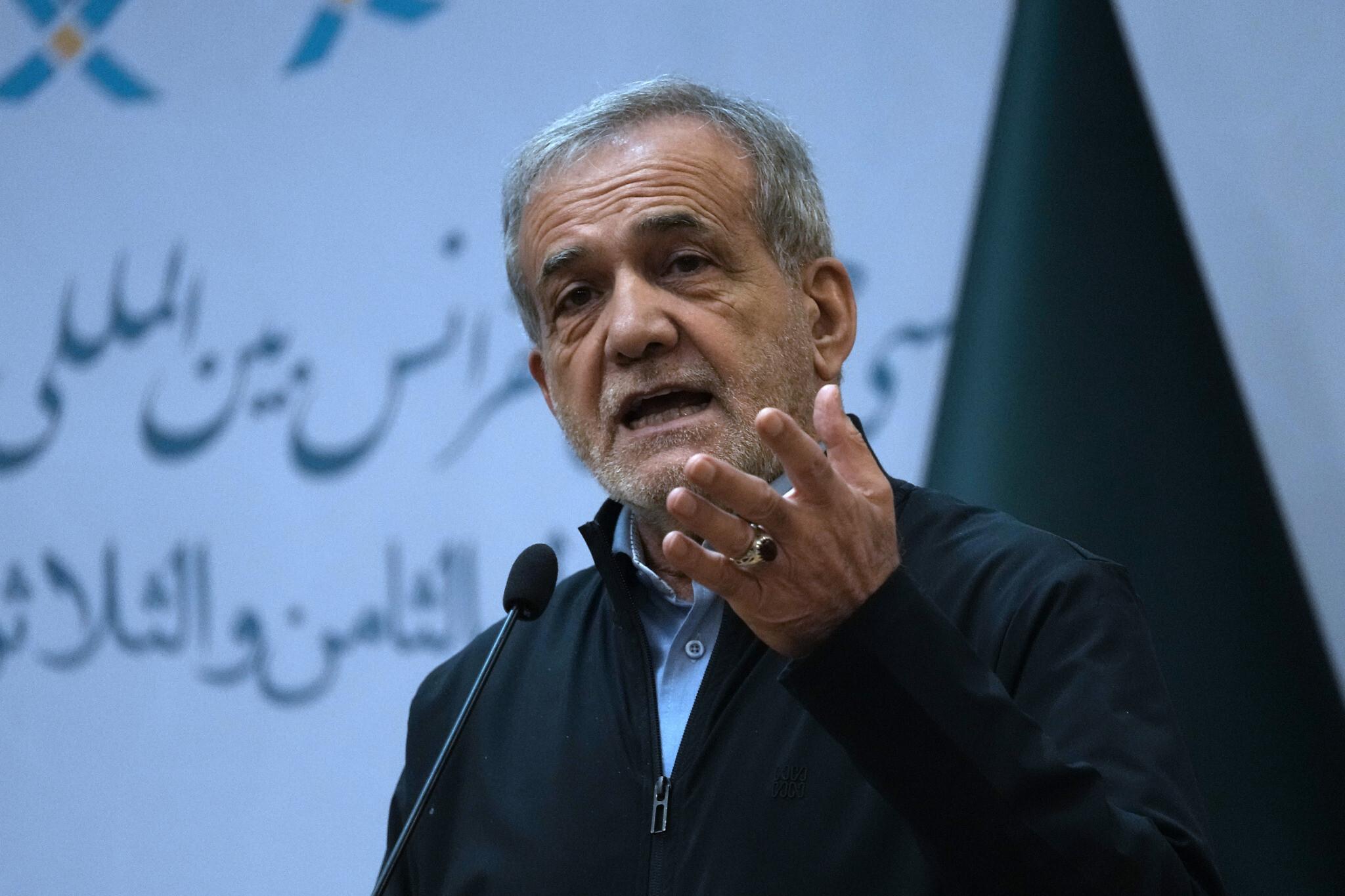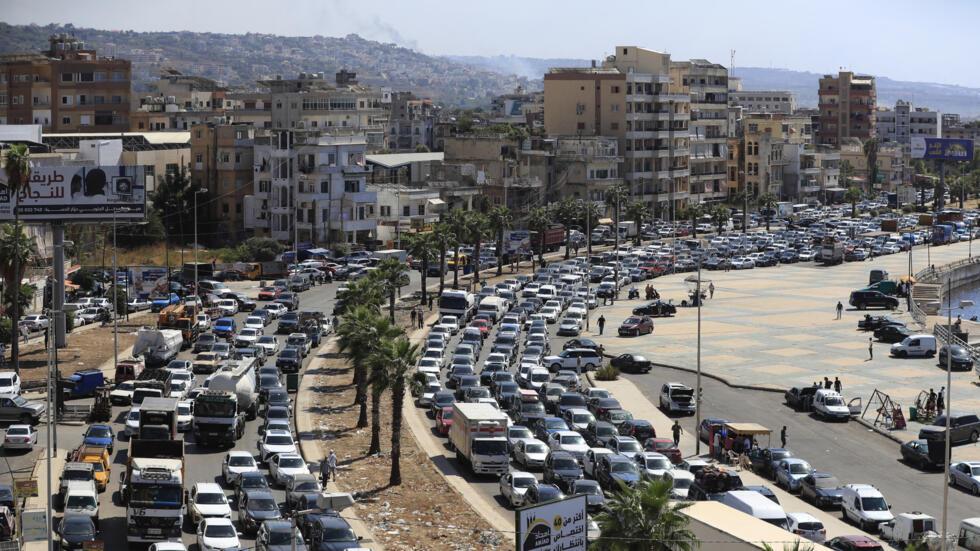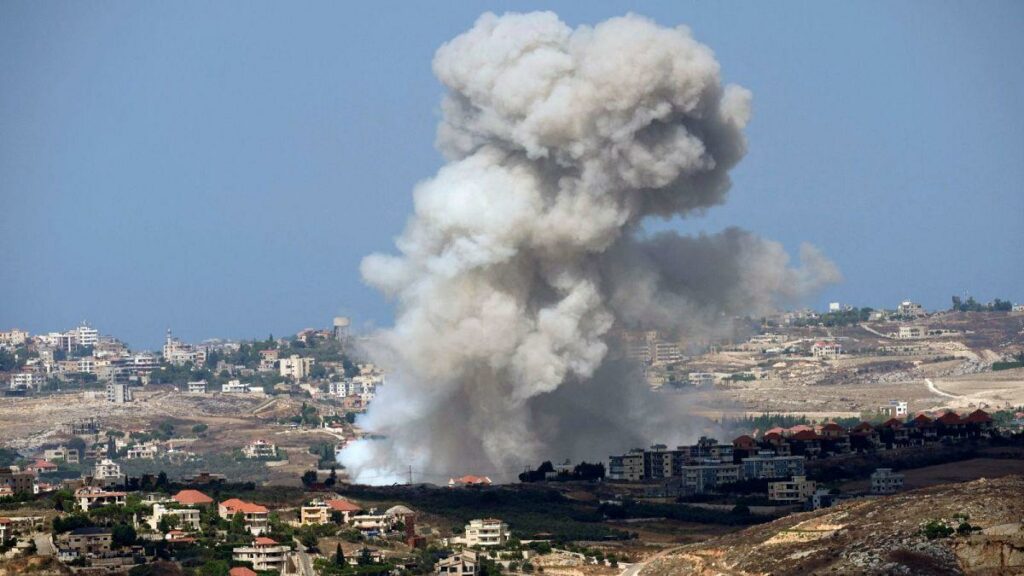In a significant escalation of tensions in the Middle East, Israeli airstrikes on Hezbollah positions in Lebanon have intensified in what is being described as the largest attack since October 7th. The latest developments come amidst growing concern over the deteriorating security situation in the region, as both sides continue to exchange fire in a volatile and highly unpredictable conflict.
Table of Contents
- Escalation of Israeli airstrikes on Hezbollah in Lebanon
- Implications of the biggest attack since Oct. 7
- Regional tensions and impact on civilians
- Recommendations for de-escalation and diplomatic solutions
- Q&A
- In Retrospect

Escalation of Israeli airstrikes on Hezbollah in Lebanon
The recent Israeli airstrikes on Hezbollah in Lebanon have intensified in what is being described as the largest attack since October 7. Tensions between the two groups have been escalating, with the latest series of airstrikes marking a significant escalation in the conflict.
According to reports, Israel has targeted multiple Hezbollah positions in Lebanon, including weapons storage facilities and military outposts. The airstrikes have caused widespread damage and raised concerns about the potential for further escalation in the region.

Implications of the biggest attack since Oct. 7
The recent Israeli airstrikes on Hezbollah in Lebanon have sparked new tensions in the region, marking the biggest attack since Oct. 7. This escalation in violence has raised concerns about the potential for further conflict and instability in the area.
As the situation continues to develop, it is important to consider the implications of this latest attack. The ongoing violence could have far-reaching consequences for the region and beyond. It is crucial for all parties involved to exercise restraint and work towards a peaceful resolution to avoid further escalation of the conflict.

Regional tensions and impact on civilians
Israeli airstrikes on Hezbollah in Lebanon have intensified, marking the largest attack since October 7th. The recent escalation in tensions between Israel and Lebanon has raised concerns about the impact on civilians caught in the crossfire. The airstrikes have targeted Hezbollah’s infrastructure and military positions, further fueling the conflict in the region.
The ongoing hostilities have resulted in a significant number of civilian casualties and displacement. The escalating violence has disrupted daily life for many residents in the affected areas, with reports of widespread destruction and chaos. The situation continues to deteriorate, as both sides show no signs of backing down, leading to a growing humanitarian crisis in the region.

Recommendations for de-escalation and diplomatic solutions
The recent Israeli airstrikes on Hezbollah in Lebanon have heightened tensions in the region, marking the biggest attack since October 7. With the situation rapidly escalating, it is crucial for both parties to prioritize de-escalation and seek diplomatic solutions to prevent further violence and loss of life.
Here are some :
- Immediate ceasefire: Both Israel and Hezbollah should agree to an immediate ceasefire to halt the ongoing violence and allow for diplomatic negotiations to take place.
- Engagement with international mediators: Both parties should engage with international mediators, such as the United Nations or regional actors, to facilitate dialogue and negotiation towards a peaceful resolution.
Q&A
Q: Why have Israeli airstrikes on Hezbollah in Lebanon escalated recently?
A: The escalation in Israeli airstrikes on Hezbollah in Lebanon is due to heightened tensions between the two parties.
Q: What triggered the recent airstrikes, marking the biggest attack since Oct. 7?
A: The recent airstrikes were triggered by alleged attacks by Hezbollah on Israeli forces operating near the border.
Q: How has Hezbollah responded to the Israeli airstrikes?
A: Hezbollah has vowed to retaliate against Israel for the airstrikes, further escalating tensions in the region.
Q: What impact do these airstrikes have on the ongoing conflict between Israel and Hezbollah?
A: The airstrikes are likely to intensify the conflict between Israel and Hezbollah, as both sides continue to engage in retaliatory attacks.
Q: How are neighboring countries and the international community reacting to the escalating violence?
A: Neighboring countries and the international community are closely monitoring the situation and have expressed concerns about the potential for further escalation and instability in the region.
In Retrospect
As tensions continue to rise between Israel and Hezbollah, the recent airstrikes in Lebanon mark the largest escalation of violence since October 7. The conflict shows no signs of slowing down as both sides remain steadfast in their positions. The international community watches closely as the situation unfolds, hoping for a peaceful resolution to the conflict. Stay tuned for further updates on this developing story. Thank you for reading.
